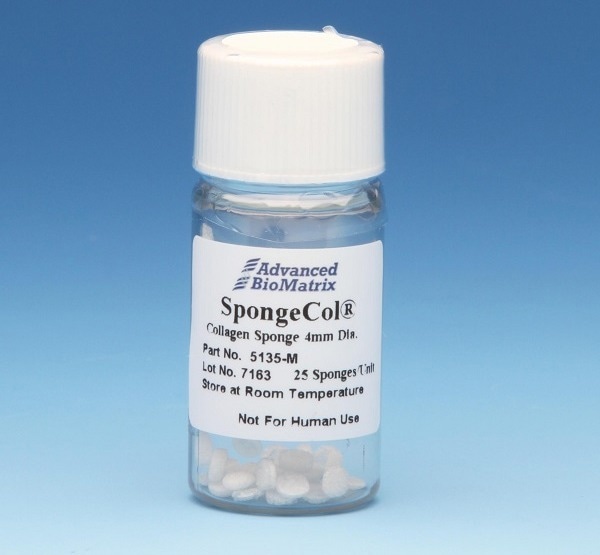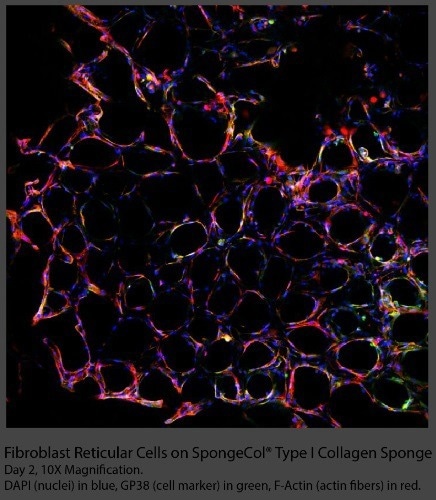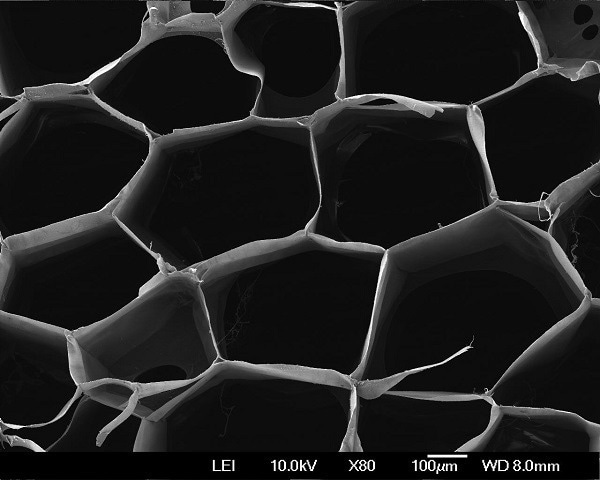Overview
Type I collagen sponge SpongeCol® has an interpenetrating, columnar pore architecture. In applications involving tissue engineering, SpongeCol® offers a larger surface area for cell adhesion, growth, and migration.
With its special columnar porous network, SpongeCol® offers a larger surface area for cell adhesion, growth, and migration. It also allows nutrients and cells to pass completely through the interpenetrating pores.
Type I bovine collagen, which is the most supportive of cell attachment, proliferation, and function, makes up SpongeCol®. While still being biodegradable over a longer period of time, the collagen is lightly cross-linked to increase mechanical strength and durability for short and long-term tissue culture.
The pores have a diameter that varies from 100 to 400 µm, with an average diameter of about 200 µm. The collagen disc has a diameter of 4 mm, or 21 mm, and a thickness of 1.5 mm.
The sponge discs can be used with a 96-well culture plate (4 mm disc), a 12-well culture plate (21 mm disc), or sanitary luer connectors for flow perfusion. Each package has both 25 (4 mm) or 5 (21 mm) collagen sponge discs.
The product has undergone terminal sterilization and is prepared for use.

Image Credit: Advanced BioMatrix

Image Credit: Advanced BioMatrix

Image Credit: Advanced BioMatrix
Source: Advanced BioMatrix
| Parameter, Testing, and Method |
SpongeCol® #5135 |
| Disc Diameter |
4mm or 21 mm |
| Package Size |
25 or 5 Sponges/Pack |
| Disc Thickness |
1.5 mm |
| Pore Size |
~200 micron diameter with a range of 100-400 micron |
| Endotoxin - LAL |
≤ 1.0 EU/mL |
| Storage Temperature |
Room Temperature |
| Shelf Life |
Minimum of 6 months from date of receipt |
| Sterilization Method |
Irradiation |
| Sterility - USP modified |
No growth |
| Collagen Source |
Purified Type I Collagen |
| Collagen Purity - Silver Staining |
≥ 99% |